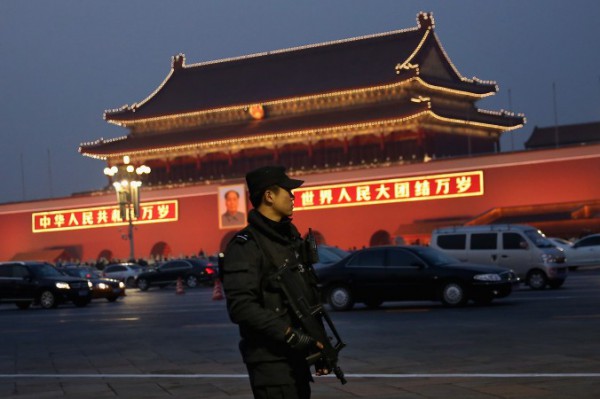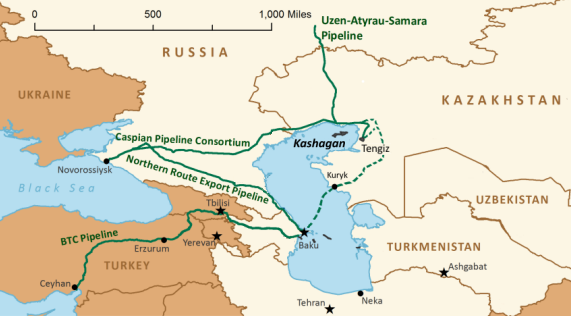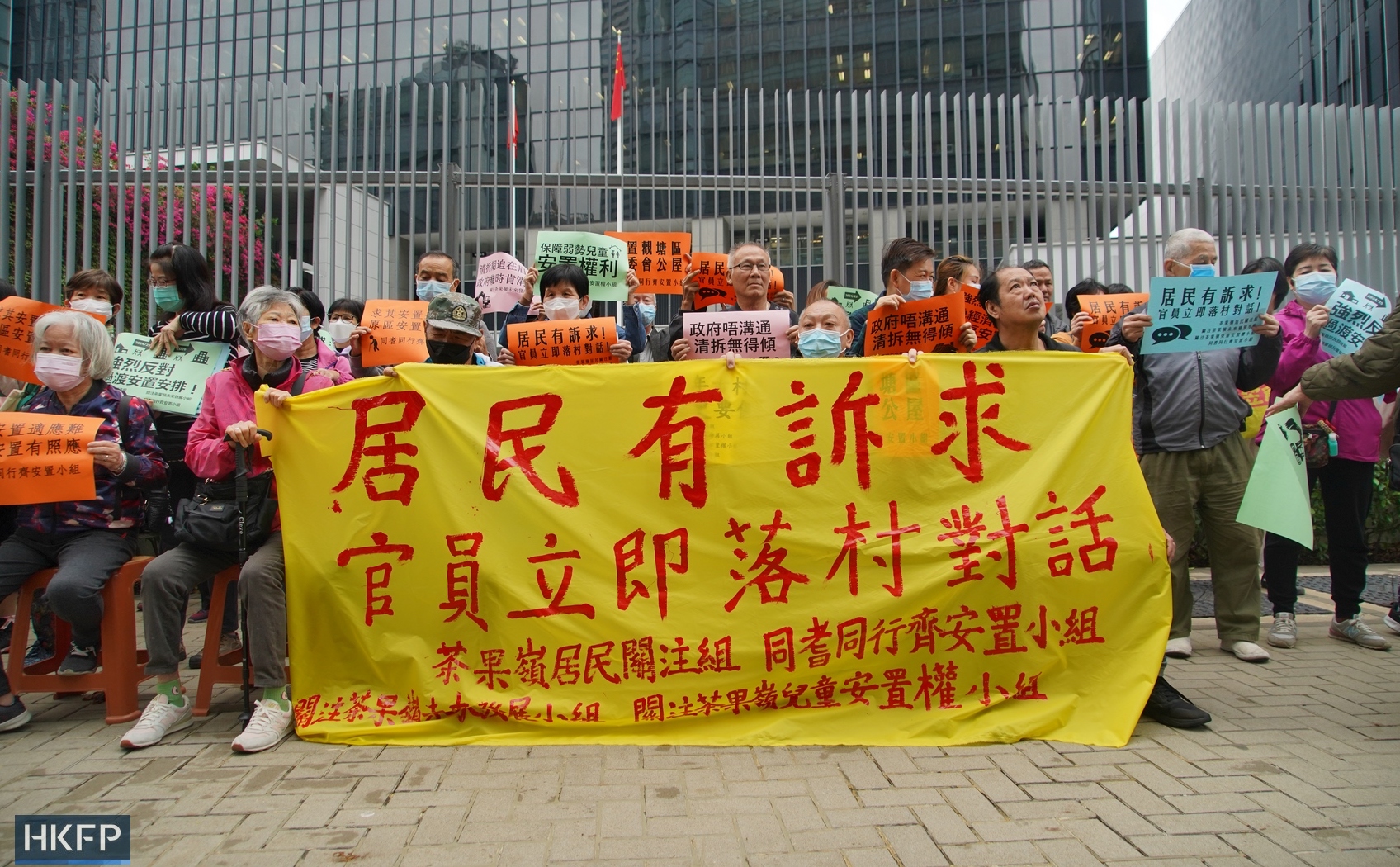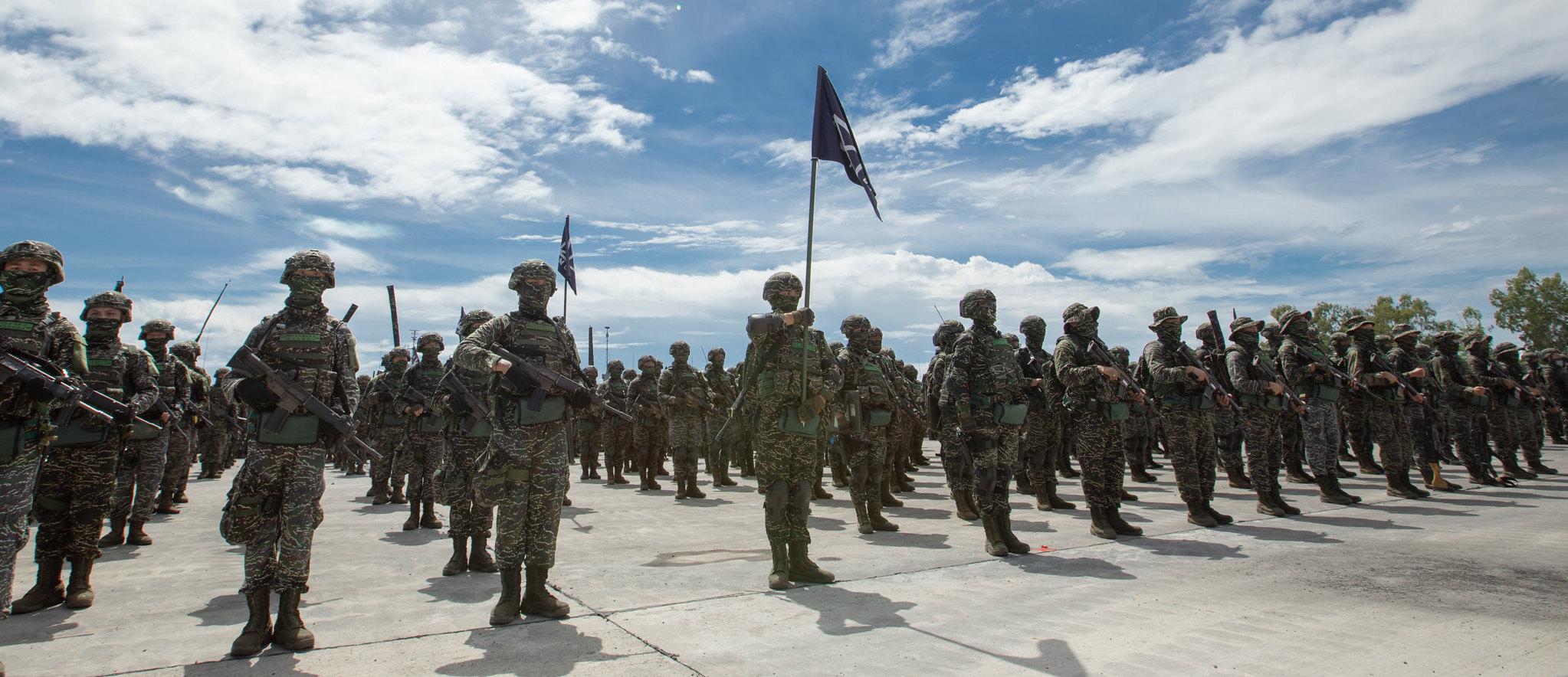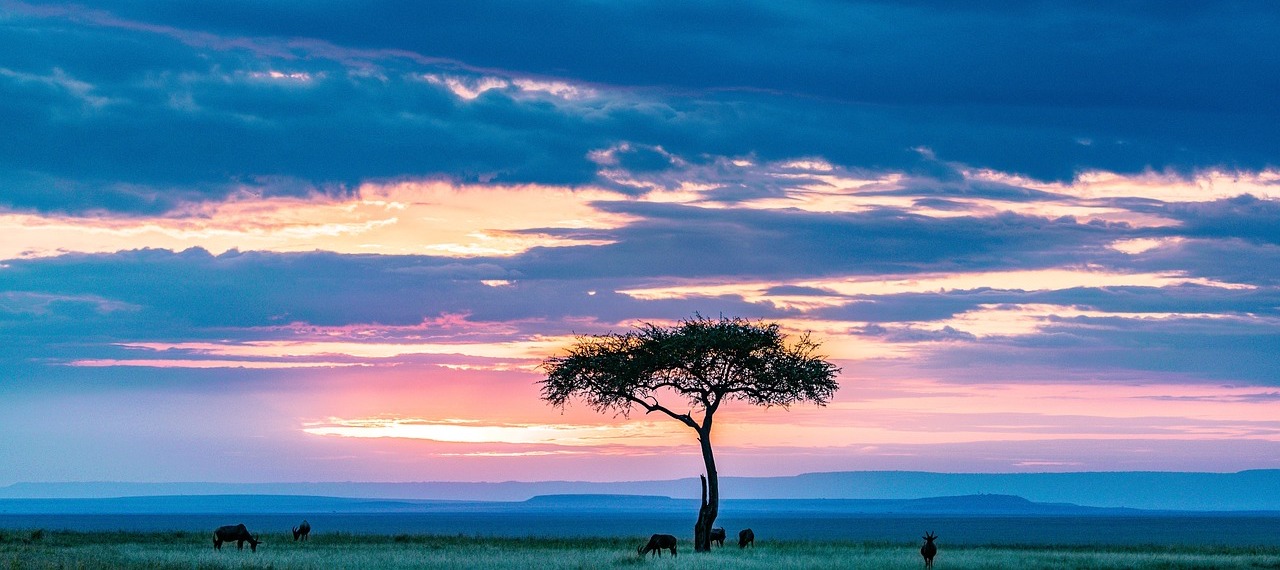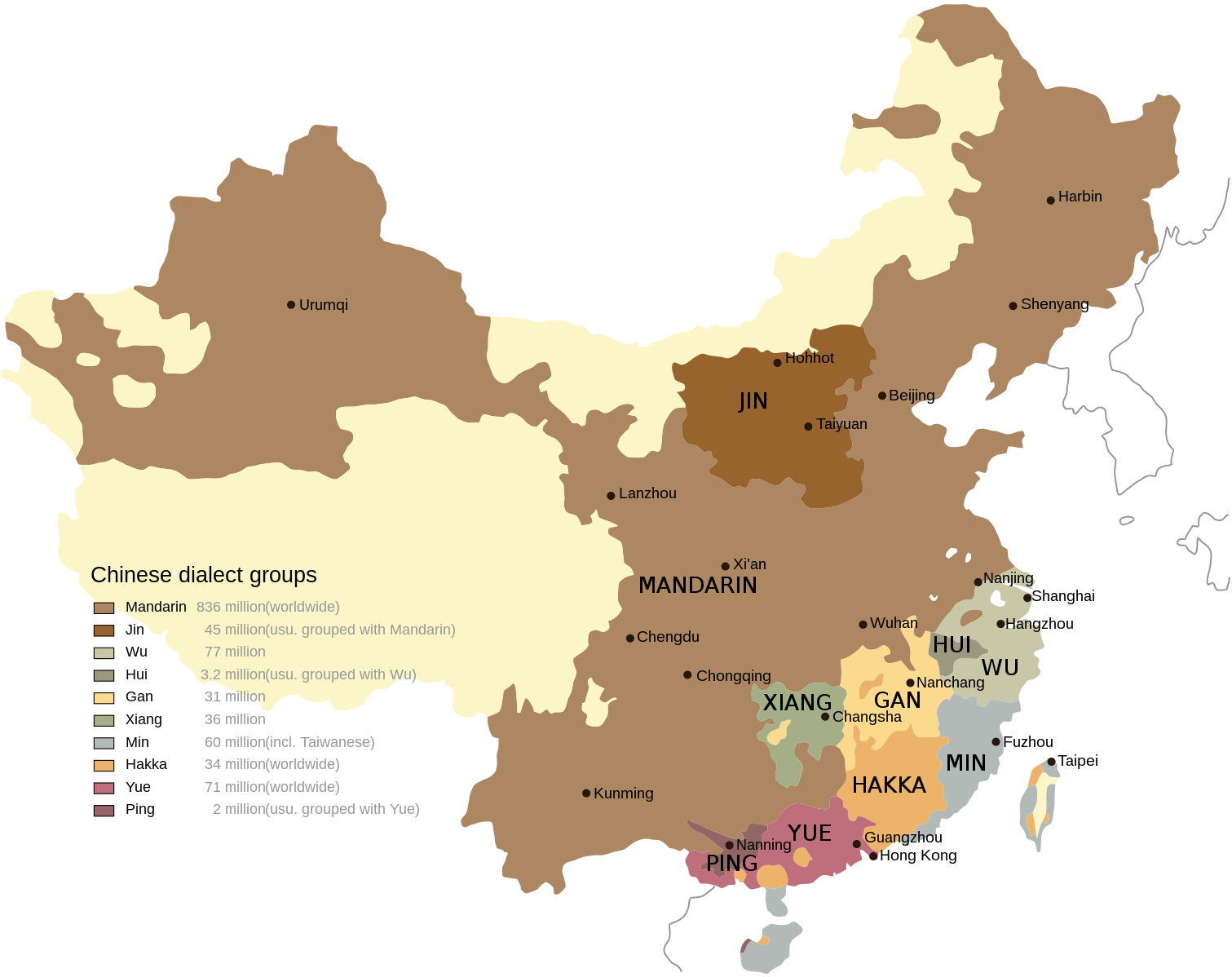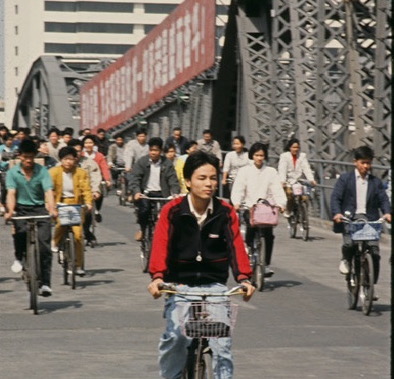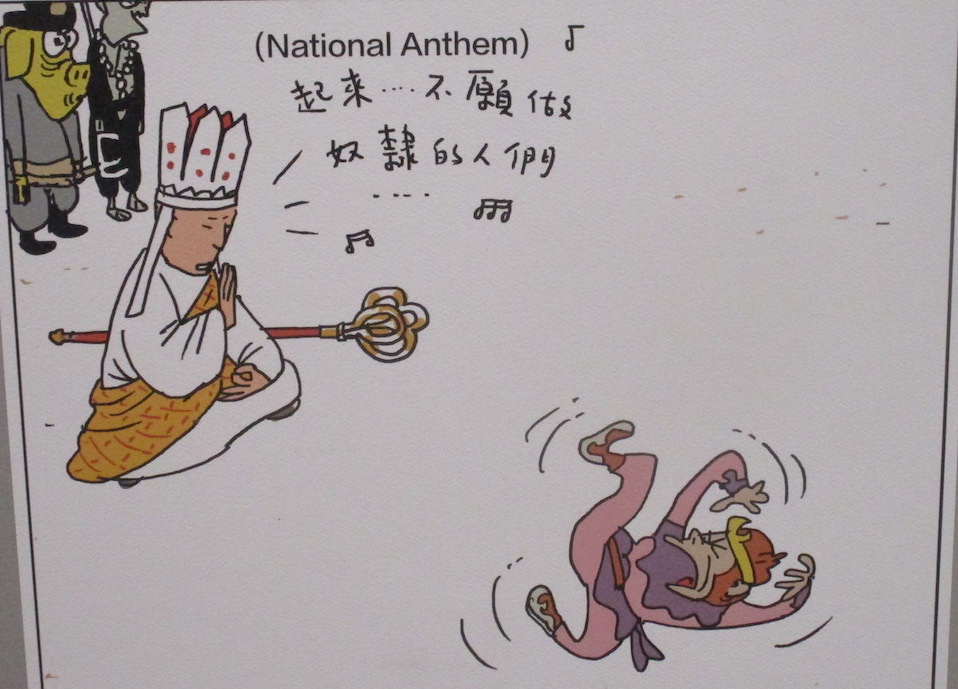
Censorship regime expands in Hong Kong
Hong Kong newspaper Ming Pao ended the decades-long run of popular satirical cartoonist Wong Kei-kwan, known by his pseudonym “Zunzi,” after his work drew fire from government authorities. Since 1983, Zunzi’s work had lampooned city officials over corruption, authoritarianism, rights abuses, and subservience to Beijing. His drawings had recently been publicly criticized by Hong Kong Chief Executive John Lee and Security Bureau chief Chris Tang. Meanwhile, books about Hong Kong protest movements, the Tiananmen Square massacre and other subjects deemed politically sensitive by Beijing are being removed from the city’s public libraries. A government audit stated that the Cultural Services Department needed to “step up efforts in examining library materials for safeguarding national security.” (Image: Zunzi cartoon depicting a monk, representing the Chinese government, controlling the rebellious Monkey King, representing Hong Kong, by a magic incantation—China’s national anthem. Photo credit: Bill Weinberg/The Village Sun)



